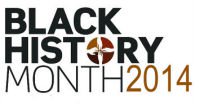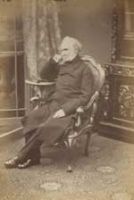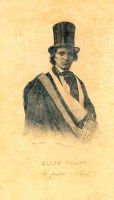 The Lushington family archive includes letters and papers of three generations of this influential and well-connected family. Stephen Lushington, judge, Privy Councillor, political reformer and anti-slavery campaigner lived at Ockham Park between 1845 and his death in 1873.
The Lushington family archive includes letters and papers of three generations of this influential and well-connected family. Stephen Lushington, judge, Privy Councillor, political reformer and anti-slavery campaigner lived at Ockham Park between 1845 and his death in 1873.
Abolition
 Stephen Lushington spoke and voted for the abolition of the slave trade in 1807. He was chiefly responsible for an act of 1824 to abolish the transfer of slaves between British colonies and, in 1833, he was very active in securing the emancipation act, working closely with Thomas Fowell Buxton, Wilberforce's successor as leader of the anti-slavery movement. Buxton later lived at Foxwarren, Wisley. A monument to emancipation, erected close to the Palace of Westminster in 1866, carries Lushington's name alongside those of Buxton, Wilberforce, Macaulay and Brougham.
Stephen Lushington spoke and voted for the abolition of the slave trade in 1807. He was chiefly responsible for an act of 1824 to abolish the transfer of slaves between British colonies and, in 1833, he was very active in securing the emancipation act, working closely with Thomas Fowell Buxton, Wilberforce's successor as leader of the anti-slavery movement. Buxton later lived at Foxwarren, Wisley. A monument to emancipation, erected close to the Palace of Westminster in 1866, carries Lushington's name alongside those of Buxton, Wilberforce, Macaulay and Brougham.
In 1825 Lushington acted for the free-born Jamaican Louis Celeste Lecesne in a celebrated libel case, speaking on his behalf in the House of Commons. Lecesne subsequently named one of his children Stephen Lushington Macaulay Lecesne. After 1833 Lushington played an important role in the campaign to suppress the slave trade carried out by other countries. In addition he was a strong advocate of parliamentary reform, Catholic emancipation, full civil rights for Jews and dissenters, and reform of the criminal law.
Fugitive slaves in Ockham
Ockham Park, Lushington's Surrey home, was owned by Lord Lovelace who had married Ada Byron, daughter of the poet. In 1836 they established the Ockham Schools on similar lines to a school that Lady Byron had established in Ealing, in accordance with the tenets of the Swiss educational reformer Emanuel Fellenberg.
Stephen Lushington later joined the movement to bring about abolition of slavery in the United States. In 1838 he met the lawyer Charles Sumner, a leading figure in the abolitionist movement in America. Sumner visited Lushington at Ockham in 1857 and the two became close friends. Lushington's support for the anti-slavery movement in American led to the Ockham Schools becoming a refuge for William and Ellen Craft, two celebrated escaped slaves from Georgia. The story of their remarkable escape was later published as Running a Thousand Miles for Freedom.
The Crafts were supported in the United Kingdom by a number of well-known figures including Harriett Martineau and Lady Byron.
Although the Crafts started at Ockham as pupils, they later took up some teaching duties. They spent nearly two years at Ockham before leaving to travel the country speaking from public platforms to denounce slavery and promote a boycott of slave-grown produce. Three of their five children were baptised at Ockham parish church between 1853 and 1863. In 1868 William and Ellen Craft returned to the newly-emancipated America with three of their children.
 Illustration of Ellen Craft
Illustration of Ellen Craft
This picture is from the Craft's book Running a Thousand Miles for Freedom; or, the Escape of William and Ellen Craft from Slavery (London, 1860). To aid their escape from America, Ellen disguised herself as a man whilst husband William acted as her servant. For more about the book see Wilson Library Special Collections. Image courtesy of James E. Shepard Memorial Library, North Carolina Central University.
Published works and sources
- Ockham All Saints parish baptism registers (reference OCK/1/1/6-7)
- Engraving of Ockham School by A Campbell, undated [1830s] (reference PX/112/22)
- Watercolour of 'Ockham House [Park], the seat of Lord King' by J Hassell, 1823 (reference 4348/3/83/2)
- Brown, Sheila, 'Ockham School' , in Root & Branch, West Surrey Family History Society, Journal volume 37, number 2, Sept 2010 (pages 72 to 76 )
- William and Ellen Craft, Running a Thousand Miles for Freedom (London, 1860)
- The Lushington Archive (references 7854, 8865, 10186 and Z/616)
- A short film, A Slave's Story: Running a Thousand Miles to Freedom, based on the Crafts' escape from Georgia and produced by the American Library Association, can be seen on YouTube

